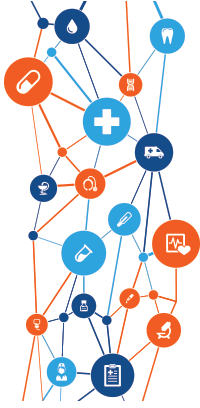|
SafeMedicationUse Newsletter
|
|
Navigating Safely Through a Sea of Health Information
2015-06-18
Have you ever "Googled" your symptoms when you were feeling ill, only to get over a million hits on various medical conditions and treatments? Have you felt overwhelmed by the copious and sometimes conflicting health advice provided by news sources and the Internet?
-

The increasing availability of health information has pros and cons. Although it may allow us to become better informed about our health, many of us find ourselves drowning in a sea of information that may not be fully reliable. Many sources do provide credible information, but others may be inaccurate or based on hidden motives, including financial gain. Making decisions about your medicines using unreliable information can lead to harmful results.
SafeMedicationUse.ca recently received a report from a consumer who became anxious after reading that one of the medicines she was taking could cause cancer. The consumer decided to visit her doctor to express her concerns-a wise decision. Healthcare providers like your pharmacist, nurse, and doctor have the expertise to help you to assess the accuracy and reliability of medical information that you read and hear about. They can help you to make informed decisions about your treatments and your health.
SafeMedicationUse.ca has the following suggestions for consumers navigating through large amounts of health information:
- Consult your healthcare provider(s) with any questions you have about the health information you've read. It is important to speak up if you have any concerns about your medicines or other treatments.
- Obtain health information from multiple reliable sources to gain a more balanced view.
- The following questions can help you discern between reliable information sources and those that are less reliable:
- How often is the information updated? Reliable sources tend to be updated frequently as new information becomes available.
- Is the information geared toward selling you a product? If yes, the information may be less reliable.
- Are the claims based on reliable research studies, that is, studies published in well-known medical or scientific journals? Ideally, they should be. Ask your healthcare providers for help in identifying trustworthy journals.
|
Tips for Healthcare Practitioners:
-
Ask patients and caregivers whether they have any questions about the patients' medical conditions, medicines, and other treatments.
-
Actively listen to your patients' concerns. Offer to help in assessing the reliability of their health information. Use patient-friendly language to enhance understanding.
-
Provide patients and caregivers with appropriate resources, including credible internet sites, for further learning.
|
Medication Safety bulletins contribute to Global Patient Safety Alerts
|

